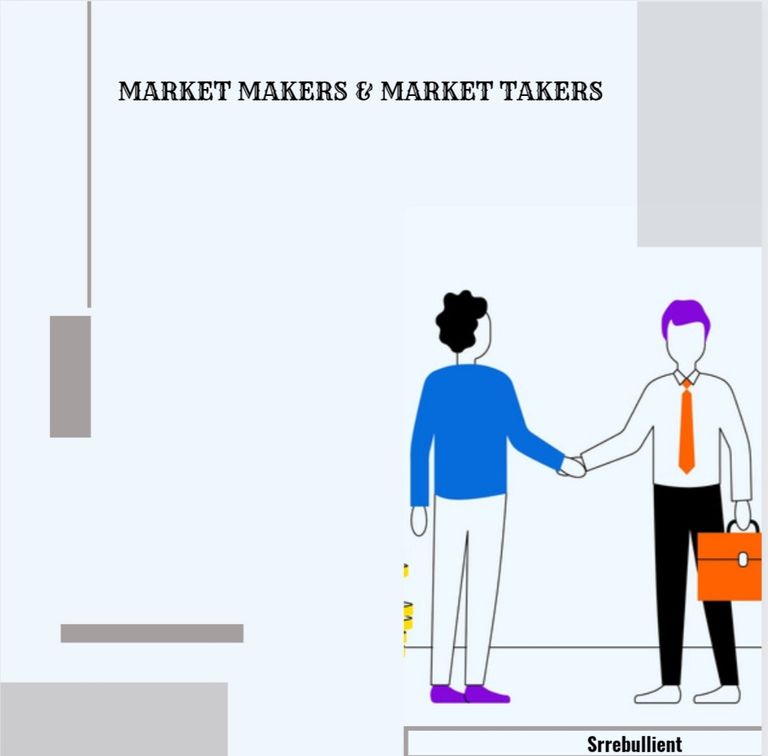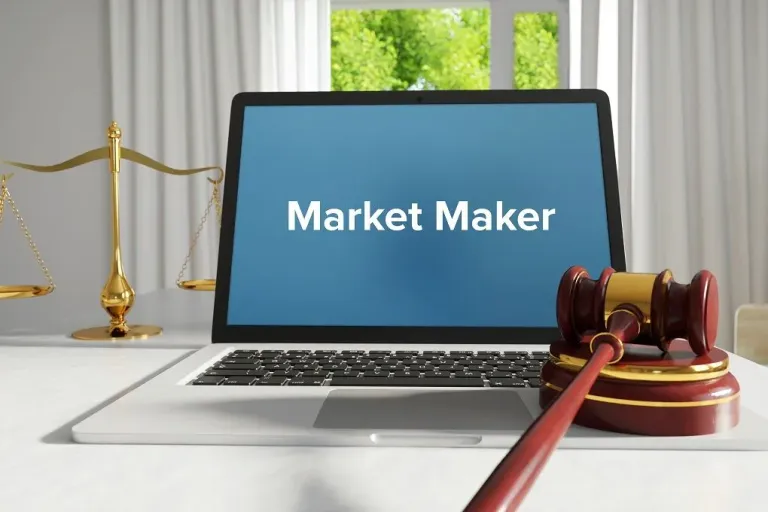
Hello everyone and welcome to my blog.
Today we will be talking about market makers and market takers because every trader is either one of these without even knowing. This makes it an important term for us to talk about.
Before we dive into the discussion, let's start by looking at liquidity which will properly help us in understanding what we have today.

It's necessary to discuss liquidity before we can adequately discuss makers and takers. When someone says an asset is liquid or illiquid, they're referring to the ease with which it may be sold.
Because an ounce of gold can be easily traded for cash in a short amount of time, it is an extremely liquid asset. Unfortunately, a ten-meter-tall statue of Binance's CEO riding a bull is an extremely illiquid asset. Though it would look fantastic in anyone's front garden, the reality is that it is not for everyone.
Market liquidity is a related (though significantly different) concept. A liquid market is one in which you may quickly purchase and sell assets at a reasonable price. Those looking to buy the asset are in high demand, while those looking to sell it are in high supply.
Given the volume of activity, buyers and sellers tend to meet in the middle: the lowest sell order (or offer price) will be similar to the highest buy order (or bid price). As a result, the gap between the highest bid and the lowest ask would be minimal (or tight).
In contrast, an illiquid market exhibits none of these characteristics. If you wish to sell an asset, you'll have a hard time doing so at a fair price because demand is low. As a result, illiquid markets have a significantly wider bid-ask spread than liquid ones.

- MARKET MAKERS

An order book is frequently used by exchanges to calculate the market value of an asset. This is where it collects all of its users' offers to purchase and sell. You could write something like this as an instruction: For example, for $10,000, you could buy 50 BTC. This is added to the order book, and when the price reaches $10,000, it will be fulfilled.
To place an order like the one outlined, you must first advertise your intentions by adding them to the order book. You're a maker because, in a sense, you "created" the market. The exchange functions similarly to a grocery shop where customers pay a fee to place items on the shelves, and you are the one who adds your own inventory.
Market makers are frequently employed by large traders and institutions (such as those specializing in high-frequency trading). Small traders can also become makers by placing certain order types that aren't instantly executed.
Please keep in mind that placing a limit order does not guarantee that you'll get a maker order. If you want to ensure that your order is entered into the order book before it is filled, choose when you place your order.
- MARKET TAKERS
If we stick with the store example, you're probably putting your inventory on the shelves for someone to buy. The taker is that person. Rather of buying tins of beans from the store, they're consuming the liquidity you give.
Consider this: by placing an offer on the order book, you boost the exchange's liquidity by making it easier for users to buy or sell. A taker, on the other hand, eliminates a portion of that liquidity. Using a market order, you can purchase or sell at the current market price. Existing orders in the order book are immediately filled when they do this.
You've acted as a taker if you've ever put a market order on Binance or another cryptocurrency exchange to trade, for example. However, limit orders allow you to be a taker as well. The fact is, everytime you fill someone else's order, you're a taker.

- FEES
Many exchanges make money by charging trading fees to users who are matched. This implies that whenever you place an order and it is fulfilled, you will be charged a little fee. However, the quantity varies from one exchange to the next, as well as based on your trading size and role.
Makers are usually given a refund because they contribute liquidity to the market. That's beneficial for business because it makes potential traders think, "Wow, look at this platform and its high liquidity. I should trade here." After all, a venue with greater liquidity will be more appealing than one with less, as trades will be easier to execute.
Market makers most times pay lesser fees than market takers because they do provide liquidity while the takers don't.

In conclusion of the whole matter we should know that market markets are in charge of creating orders while the takers are the ones that fill orders. Because of this, market markets tend to serve as liquidity providers thus making them to pay lower fees when compared to market takers.
Do vote @Blurt.Live as your Witness
Posted from https://blurt.live